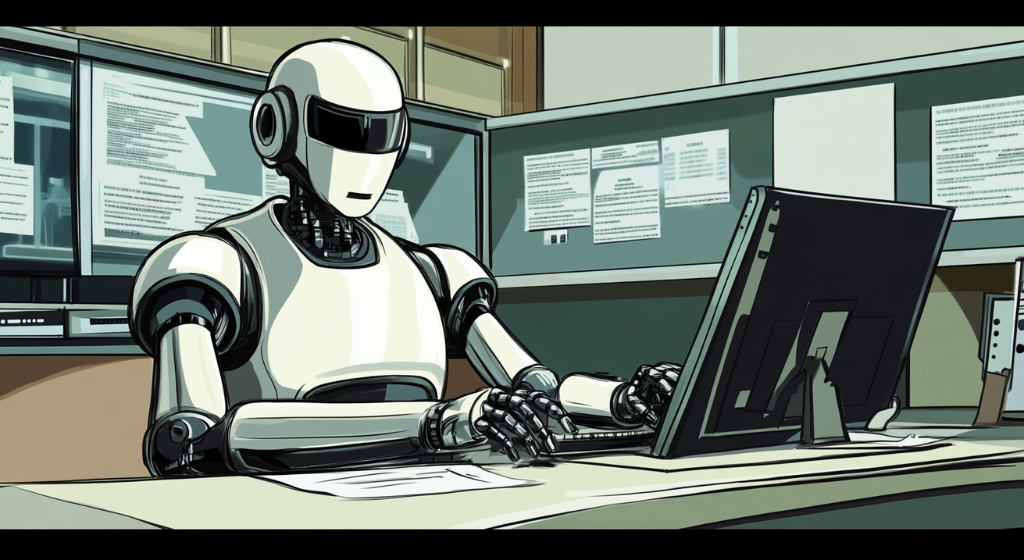
Generative AI tools like ChatGPT are reshaping the job market by reducing demand for automation-prone freelance roles, particularly in writing and design, while highlighting the growing need for creative and critical thinking skills to adapt to an AI-driven future. (Source: Image by RR)
Policymakers Urged to Support Workers Displaced by AI’s Rapid Growth
Generative AI tools like ChatGPT are reshaping the job market by reducing demand for freelance roles prone to automation, according to a study by Harvard Business School, the German Institute for Economic Research and Imperial College London Business School. Analyzing over 1.3 million job posts from 2021 to 2023, researchers found a 21% drop in demand for jobs such as writing and software development within eight months of ChatGPT’s release in late 2022. AI image generation tools like Midjourney and Stable Diffusion similarly caused a 17% decline in demand for graphic design and 3D modeling gigs.
The shift, as reported in fastcompany.com, is driving heightened competition for remaining jobs, potentially lowering compensation rates. The researchers predict that routine, repetitive roles will continue to dwindle as AI adoption grows, placing greater value on skills that complement AI, such as creativity, critical thinking, and emotional intelligence. This evolving demand for advanced skills is likely to widen the gap between high-skill, high-wage roles and low-skill, low-wage positions, fundamentally reshaping the labor market.
AI proponents argue that while the technology may eliminate jobs in the short term, it will also create new roles where humans collaborate with AI, such as training AI systems or managing productivity-boosting technologies. Initial studies demonstrate significant productivity gains with AI, such as consultants completing tasks 25% faster and producing 40% higher quality results using GPT-4. Similarly, MIT research found that ChatGPT reduced the time required to write business documents by 40% while improving their quality by 18%.
Policymakers are urged to respond proactively to these changes by ensuring equitable access to education and upskilling opportunities, as well as providing social safety nets and reemployment programs for displaced workers. These efforts could help mitigate the disruptions caused by AI’s rapid adoption while fostering a more inclusive and balanced workforce in an AI-driven future.
read more at fastcompany.com







Leave A Comment